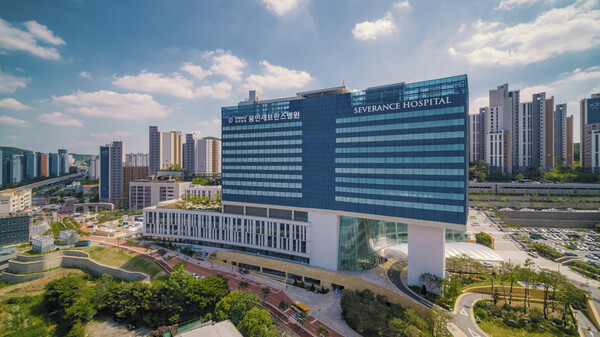Yongin Severance Hospital said it recently completed its first liver transplant surgery successfully. The patient, who underwent a brain-dead donor liver transplant on Dec. 12 last year, fully recovered and was discharged on Jan. 24.

Liver transplantation is the only curative treatment for end-stage liver failure and is also recognized as an effective method for treating liver cancer. With this successful procedure, Yongin Severance Hospital is now capable of offering optimal treatment options for patients suffering from end-stage liver disease, liver cancer, and other liver conditions.
On Dec. 8, 2024, a woman in her 50s was admitted to the emergency room at Yongin Severance Hospital after losing consciousness due to severe hypoglycemia caused by excessive alcohol consumption.
The patient was diagnosed with metabolic acidosis requiring immediate dialysis and was admitted to the intensive care unit for urgent treatment. Her Model for End-Stage Liver Disease (MELD) score was 40, indicating a life-threatening condition that necessitated a liver transplant within a week.
The medical team registered the patient on the waiting list for a brain-dead donor liver transplant through the Korea Organ Donation Agency (KONOS) while simultaneously preparing for the possibility of a living donor transplant after confirming the family's willingness to donate. Just one day after registration, KONOS notified the hospital that a suitable brain-dead donor was available and that the patient was the top priority recipient.
Professor Yim Seung-hyuk, a transplant and vascular surgeon, performed the liver transplant while minimizing the operation time.
Yim coordinated the timing of the procedure by preemptively excising the patient's liver before the donor organ arrived from another hospital, allowing for an immediate graft anastomosis upon its arrival.
Despite the patient's critical preoperative condition, which included pulmonary edema and potential brain damage, she remarkably began breathing on her own just three days after surgery, allowing for the removal of her endotracheal tube.
Her liver enzyme levels also returned to normal. Additionally, her kidney function, which had deteriorated to the point of requiring continuous dialysis due to hepatorenal syndrome, has significantly improved, and she is now living without dialysis support.
"A transplant surgery is never performed by a single individual," Professor Yim said. "I extend my gratitude to all the departments that contributed, including the gastroenterology team, the blood supply team, the anesthesia team, and those responsible for preoperative preparations, intraoperative renal replacement therapy, and postoperative care.”
Yongin Severance Hospital has established a seamless collaboration system between the gastroenterology, hepatobiliary surgery, and transplant and vascular surgery departments for comprehensive liver disease treatment.
The transplant and vascular surgery team also works in close coordination with both Severance Hospital and Gangnam Severance Hospital, ensuring that patients receive the best possible care.
Related articles
- Yongin Severance Hospital signs MOU with Indonesia's Siloam Hospitals for smart hospital consulting and clinical exchange
- Yongin Severance Hospital opens international clinic for foreign patients
- Metabolic fatty liver disease: a new red flag for liver cancer
- Yongin Severance Hospital marks 100 robotic breast cancer surgeries

